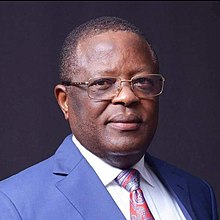The Nigerian military are currently deployed in 32 States in all zones in the country trying to quell internal strife and violent conflict. The resurgence of violence in Kaduna State over the past week and in the past few months in Plateau States are reminders that the whole country is a potential hot spot that can explode at any moment. From the long-running militant movement in the Niger Delta over oil extraction to the explosive Boko Haram insurgency in the northeast, through to the national spread of violent conflict rooted in the crisis of pastoralism, cattle rustling and farmer-herder conflicts, Nigeria is witnessing the most significant level of low intensity conflicts in its history. The result is the most serious challenge to political order in our country and creeping militarization.
It is in this context that the United States Institute of Peace in collaboration with White Ink Consult organized a roundtable this week in Yola on the theme – Transition to Civilian-Led Security Governance in North eastern Nigeria and the Lake Chad Basin. The main paper authored by General Saleh Bala (Rtd) and myself would be published in the coming weeks by the Institute. Our core argument is that the Boko Haram insurgency, is of particular concern as it cuts across the borders of Nigeria, Niger, Cameroon, and Chad, creating a regional conflict in the Lake Chad Basin that has confounded these neighbours with the complications of collaborating across governments and other players. Through the Lake Chad Basin Commission (LCBC), the four countries are trying to cooperate on competitive resource issues related to Lake Chad, which has been drying rapidly and losing surface area thereby producing a crisis of livelihoods.
As a result of the coordinated regional military push and fracturing within Boko Haram, the number of people killed in terrorist acts in Nigeria dropped from 4,940 in 2015 to 1,832 in 2016. Deaths in Cameroon, Chad, and Niger also declined 75 percent. The military has largely degraded the capacity of Boko Haram but over the past year however, we have witnessed a resurgence of their activities that must be curbed. The military has had to rely on vigilante groups that supported the fight against the insurgency but might in future present a unique challenge to post conflict security. Focusing on the Lake Chad Basin, the joint paper outlines the dynamics of the insurgency and implications for its aftermath, the challenges facing the Nigerian government, the imperative of national police reform, and pathways towards stable and effective civilian-led security governance.
In the North East, as in much of the country, the military still provides substantial urban and rural security in liberated areas and conducts operations to continue degrading the capabilities of the insurgents, who since June 2017 have been staging sporadic attacks from camps scattered across difficult terrain. The burden of securing liberated areas in the North East in conjunction with its numerous other deployments all over the country is overstretching the military and impeding its primary responsibility of guaranteeing territorial integrity of the country. The Armed Forces of Nigeria (Army, Navy, and Air Force), it should be noted, have an estimated force strength of only 181,000 personnel, deployed in thirty-two of the nation’s thirty-six states.
Compounding the problem of numerical capacity of the armed forces is their traditional focus on protecting a regime rather than the civilian population. The same mindset weakens inter-agency coordination and cooperation among these forces, because working across borders can seem contrary to the primary aim of protecting the government. The lack of focus on serving civilians means that most residents of the northeast have over the decades seen little genuine public safety offered by the Nigerian police as our Constitution provides for. Even more important, the people have not seen government services, such a health and educational facilities, not to mention development projects.
While waiting for the complete routing of the Boko Haram insurgency, it’s important to start planning for the de-militarization of the North East over the short- to medium-term to re-establish community confidence in civilian security institutions and respect for the rule of law. The discussions at the roundtable were very engaging and the entire group showed commitment and passion in their analysis and suggestions on how to return the Lake Chad region to peace and development. Participants acknowledged that in spite of some recent setbacks in the struggle against the insurgency, there has been steady progress and more territory are being secured on a regular basis. It is therefore appropriate to plan for and prepare for the transition from military to Civilian-Led Security Governance in North eastern Nigeria.
The problem is that the Nigerian Police Force is currently not fit for purpose and would be unable to take the relay from the military in their current form. About half of Nigeria’s estimated 350,000 police personnel are on VIP guard duty and are not available for normal policing duties. Attempts by succeeding regimes to stop the practice have all failed. It is precisely because of these failures that the Nigerian State has come to rely almost exclusively on the armed forces to engage with security challenges. This is a defeatist attitude. The President must focus urgently on the task of reviving the police. The implementation of the police reform proposals worked upon by the Danmadami (2006), M. D. Yusuf (2009) and Osayande (2012) Reform Panels should be implemented with the utmost urgency. The mobile police must be prevented from carrying the bags of wives of big men and should be expanded and trained to start taking over from the military.
The roundtable also extensively discussed the problems associated with Islamist radicalism, which has become a major problem in the Lake Chad region. The number of people indoctrinated has become very large. To counter the tendency, all stakeholders need to work together on the on-going process of deradicalization. It is even more important for religious and community leaders to engage in religious education that is based on the consensus of religious authorities in a preventive programme of counter radicalization to prevent more people falling into the trap of radicalism.
The origin of the crisis in the Lake Chad region is rooted in the high level of poverty, bad governance and a strong sense of economic and social injustice felt by the people. Part of the drivers of the conflict has been the search for justice, which was exploited by Boko Haram to engage in the insurgency. The return of peace would therefore require addressing the insurgency but also providing for the economic recovery of the zone and improvements in livelihoods. Meanwhile, the number of insurgents that have been captured or have surrendered is so large that the Nigerian judicial system cannot prosecute within a reasonable time. It is therefore important to develop a framework for a transitional justice mechanism that can process the former insurgents in a quasi-judicial system, allow for forgiveness and prosecute only the most serious offenders. The successful and complete defeat of the insurgency requires improved relations between security agencies and communities. The improvement of relations would provide the basis for increased intelligence from the people and should therefore be prioritized.
Participants expressed their concerns at the anarchic way in which development partners develop their programming often ignoring the plan by Government encapsulated in the Buhari Plan of January 2017 and their tendency of devoting a significant part of their budgets to their personal comfort rather than the target population of the North East. The roundtable strongly felt that they should reorient their activities more closely with the Paris Principles of Aid Effectiveness, which requires that they align with national plans and that their budgets be directed at target populations rather than themselves.
#GandujeGate
It was disgusting yesterday to see Governor Ganduje of Kano State pull out hundreds of primary school pupils in Kano to protest against Jafar Jafar, the journalist that exposed to the world how he allegedly collects bribes. It is scandalous, wicked and unacceptable to drag children of the poor from public schools to support corruption they know nothing about. This form of child abuse must not be allowed to recur.



